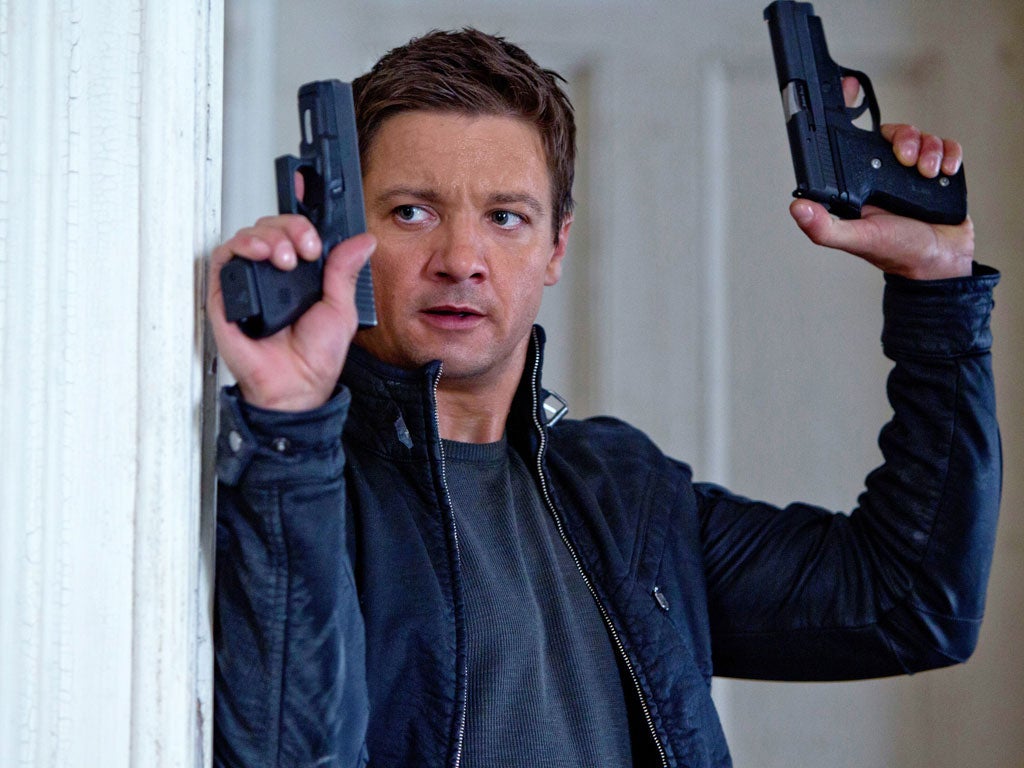
Your support helps us to tell the story
From reproductive rights to climate change to Big Tech, The Independent is on the ground when the story is developing. Whether it's investigating the financials of Elon Musk's pro-Trump PAC or producing our latest documentary, 'The A Word', which shines a light on the American women fighting for reproductive rights, we know how important it is to parse out the facts from the messaging.
At such a critical moment in US history, we need reporters on the ground. Your donation allows us to keep sending journalists to speak to both sides of the story.
The Independent is trusted by Americans across the entire political spectrum. And unlike many other quality news outlets, we choose not to lock Americans out of our reporting and analysis with paywalls. We believe quality journalism should be available to everyone, paid for by those who can afford it.
Your support makes all the difference.In a film about cover-ups, the tagline of this fourth Bourne picture – "There Was Never Just One" – could itself be justly accused of concealing a more prosaic truth: "We needed to cook something up once Matt Damon bailed on the franchise." If you've not seen any of the previous adventures of the rogue superagent Jason Bourne, you'll struggle to make sense of The Bourne Legacy. Even if you have seen them it will be a test of your recall and you'll probably find the law of diminishing returns exerting an irresistible pressure.
Bourne doesn't actually appear in this new instalment, but not because he's dead. In fact, it's the inability of the CIA to kill him off that has created a whole new set of problems for their Dirty Tricks Department. It seems there was a parallel top-secret programme of neuro-experimentation, known as Outcome, which produced a team of superhuman agents à la Bourne; they too have been hunted down and terminated, with one exception. This would be Aaron Cross (Jeremy Renner), whose macho credentials are established within 10 minutes: there he is, swimming bare-chested in the Alaskan wilderness by day and defending himself against wolves by night. He trips across mountain heights as nimbly as a goat, hears incoming drone missiles at a distance of miles and self-medicates in sub-zero temperatures. The franchise has a new director as well as star. Tony Gilroy, who had a hand in writing the first three movies, has taken over the hot seat from Paul Greengrass. Not an easy post to inherit, this, given the stunning hyperkinetic style in which Greengrass electrified the action of the second and third Bournes. On the other hand, with Damon's departure, Gilroy has been allowed to freshen up the cast. Where Bourne had David Strathairn as a foe, Cross is up against his former controller Byer (Edward Norton), a man so driven and steely he goes running in the rain in the small hours.
A flashback to the single encounter between the two finds Byer explaining away an unspecified CIA-backed atrocity to Cross: "We are morally indefensible, and absolutely necessary." It's basically the spooks' charter. Byer it is who has decided that the Outcome programme has been "infected" and needs to be shut down, meaning: all operatives must be liquidated, pronto.
And, because there must be a woman to act as the hero's wingman, Rachel Weisz steps in as Dr Marta Shearing, a government research scientist who's got tangled up in the conspiracy. She understands the medical intricacies involved in Cross's brainwashing and furthermore knows where to find the "chems" that will set his brain right again.
Weisz does a neat job, though by the end she's not required for much more than looking terrified and hanging onto his coat-tails. Renner takes to the central role with assurance, stocky and athletic, less pretty than Damon, but more humorous and believable, perhaps on account of a carry-over from his fatalistic bomb-disposal expert in The Hurt Locker. For all Gilroy's supercompetent handling, however, there remains an air of redundancy about this picture. Back in 2007, when Greengrass made The Bourne Ultimatum, he practically reduced the spy thriller to a near-abstract level of tautness. The series credibly traced the way Bourne's confusion and loss of identity turned to rage, and then retribution. Here, that drama has been squashed into a package at once overlong and underexplained. If the makers have any sense they will close the franchise down – but I wouldn't bet on it.
Join our commenting forum
Join thought-provoking conversations, follow other Independent readers and see their replies
39Comments